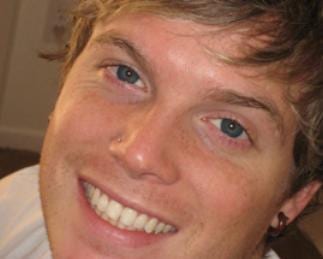
Cassandra Do was strangled to death in 2003.
Two years after the murder of Christopher Skinner, Toronto police have yet to find his killers, keeping the case on a growing list of cold cases affecting the city’s queer community.
Meanwhile, Statistics Canada has reported increases in gay-related hate crimes. In 2008, the agency found such crimes had more than doubled from the previous year, stating, however, that the rise could be due to better reporting. Countless hate crimes also continue to go unreported, it noted.
While many hate crimes are undocumented, many murders involving members of Toronto’s queer community have gone unsolved.
Probably the most well known is the murder of Skinner, who was beaten and run over by an SUV on the way home from his sister’s birthday party two years ago, on Oct 18, 2009.
The most recent case involves University of Toronto accountant Allan Lanteigne, who was found bludgeoned to death in his Ossington Ave home on March 4.
The murder was reminiscent of another unsolved case from Jan 18, 2001, that of David Buller, a University of Toronto professor who was murdered in his office in the Visual Studies department.
Police say they have compared notes on the two cases and Inspector Ken Taylor, one of the original investigators of Buller’s homicide, tells Xtra he often wakes up in the middle of the night thinking about the Buller case.
In July 14, 2008, in another unsolved murder, Ross Magill was stabbed to death after at least two men entered his apartment on Delisle Ave, near Yonge and St Clair.
Both the Magill and Lanteigne cases are being handled by lead homicide investigator Detective Sergeant Daniel Nielsen, who has appealed for people to come forward. “There are people in the community who know who did this,” he says.
Similarly, Stacey Gallant, lead detective in the Skinner case, says appeals have been made to those who witnessed the murder of the 27-year-old on Adelaide St. However, despite the $150,000 reward offered by city police and Skinner’s family, no one has come forward with information.
Skinner was walking home from the Entertainment District when several men in front of an SUV assaulted him. After 30 seconds they got into the vehicle and ran him over.
“While there is lots of video of some of the events, and some of the images are helpful in our investigation, the quality is not good enough to identify the people or the licence plate,” reminds Gallant, who says police have “exhausted all investigative leads” and his unit can now only wait and hope one of the men involved will come forward.
The murder of Cassandra Do, a 32-year-old Vietnamese-Canadian trans sex worker and nursing student, also remains unsolved.
Do, who was also known as Tula, was found strangled to death in her Gloucester St apartment on Aug 26, 2003. She was saving money for sex reassignment surgery, and friends have said she feared for her life because of her dangerous job.
Detective Sergeant Craig Samson, who led the initial investigation, found DNA evidence on Do that matched DNA on a female sex worker after an attempted assault in 1997. The suspect in that case was described as a tall black man, six-foot three-inches, between 30 and 40 years old, 230 to 350 pounds with a shaved head.
Despite early hopes the case would be solved quickly, police are still hunting for Do’s murderer.
“It is very frustrating having DNA evidence, which is an excellent clue, and to get no real results,” says Samson.
A January 2011 article in the Toronto Star noted that police have struggled to solve recent murder cases, with arrests made in just 26 of Toronto’s 60 homicides in 2010.
Another well-known murder that remains unsolved is that of former Barn owner Janko Naglic, who was suffocated to death in his Davisville-area home on Oct 27, 2004.
Naglic’s former lover Ivan Mendez-Romero was acquitted of the murder in 2008. Detective Sergeant Wayne Banks told Xtra, “the case is closed and nothing is being actively investigated.”

 Why you can trust Xtra
Why you can trust Xtra


